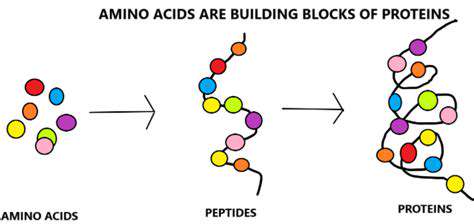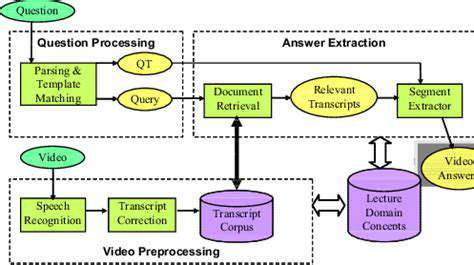Novel Protein Diets for Pet Allergies
Novel protein diets are formulated using proteins that are infrequently encountered by the pet's immune system. This approach aims to minimize the chance of triggering an allergic reaction by introducing a protein source the pet hasn't previously encountered. The theory behind this approach is that the immune system is less likely to develop an adverse response to an unfamiliar protein.
This innovative approach provides a pathway to identify potential allergic triggers and potentially alleviate allergy symptoms. Implementing a novel protein diet requires close monitoring and careful consideration to ensure it's the right solution for the specific pet.
Types of Novel Proteins
Novel protein sources can vary, depending on the specific pet and the proteins they've been exposed to. Common examples include proteins like duck, rabbit, venison, or even certain types of fish or seafood, which are often relatively uncommon in commercial pet food. Finding a novel protein that a pet hasn't been previously exposed to is crucial for the effectiveness of this approach.
The selection of a novel protein should be made in consultation with a veterinarian, who can assess the pet's specific needs and potential sensitivities.
Potential Benefits of Novel Protein Diets
One of the key benefits of novel protein diets is their potential to reduce or eliminate allergic reactions. By introducing a protein source the pet's immune system hasn't encountered, the risk of triggering an allergic response is minimized. This can lead to a significant improvement in the pet's overall health and well-being, reducing discomfort and improving their quality of life.
These diets can be especially beneficial for pets with severe allergies, providing a potential pathway to alleviate symptoms and improve their overall health. However, a vet's guidance is essential for determining suitability.
Potential Drawbacks and Considerations
While novel protein diets offer a promising strategy for managing pet allergies, there are some potential drawbacks to consider. One concern is the potential for digestive upset or intolerance in some pets when transitioning to a novel protein. Carefully monitored transitions are crucial to mitigate any potential negative effects.
Another consideration is the cost of specialized novel protein diets, which can sometimes be more expensive than traditional pet foods. Furthermore, long-term use of a novel protein diet might not be suitable for all pets, and ongoing veterinary monitoring is crucial to ensure the diet remains effective and safe.
Veterinary Guidance and Monitoring
It's crucial to emphasize that novel protein diets should be implemented under the guidance of a veterinarian. They can assess the pet's specific needs and sensitivities, recommend an appropriate novel protein, and monitor the pet's response to the diet. Regular veterinary check-ups are essential during the transition and throughout the diet's duration to ensure the pet's health remains optimal.
A veterinarian can help identify any potential issues and adjust the diet as needed. This specialized care ensures that the pet's allergy management is tailored to their individual needs and health status.
Long-Term Management and Veterinary Support

Long-Term Veterinary Care Plans
Developing a comprehensive long-term veterinary care plan is crucial for ensuring the well-being and longevity of your animal companion. This plan should outline the specific needs of your pet, including preventative care, potential health concerns, and how to address them proactively. This proactive approach can significantly improve your pet's quality of life and extend their lifespan. Regular checkups, vaccinations, and parasite prevention are fundamental components of this plan.
Dietary Management for Specific Needs
Proper nutrition is essential for maintaining optimal health in pets. A tailored diet, formulated to address specific dietary needs, allergies, or conditions, can make a substantial difference in preventing and managing various health issues. Understanding your pet's breed, age, and activity level is key to formulating a suitable dietary plan. A veterinary nutritionist can offer personalized guidance in this area.
Monitoring and Tracking Health Parameters
Regular monitoring of key health parameters, such as weight, temperature, and activity levels, is essential for early detection of potential health problems. Keeping detailed records of these parameters can help your veterinarian identify trends and make informed decisions regarding your pet's health. Tracking these metrics allows for proactive intervention and can significantly improve the outcome of any potential health issues.
Managing Chronic Conditions
Many pets develop chronic conditions that require ongoing management. This may involve medication, dietary changes, or specific therapies. A well-structured plan, developed in collaboration with your veterinarian, is vital for managing these conditions effectively. Understanding the specific needs of the condition and the pet's overall health is paramount in creating an effective management plan. This plan should also include regular check-ups and adjustments as necessary.
Preventive Care and Regular Checkups
Preventive care, including vaccinations, parasite prevention, and dental care, is crucial for maintaining your pet's health. Regular checkups with your veterinarian are essential for early detection of potential problems. By staying proactive with preventive care, you are investing in your pet's long-term well-being and potentially preventing costly and serious health issues down the road.
Emergency Preparedness and Contingency Plans
Having a plan in place for potential emergencies is essential. This includes knowing your pet's medical history, having emergency contact information readily available, and understanding how to react in various emergency situations. Preparing for potential emergencies will provide peace of mind and support effective action in times of crisis. Identifying local veterinary emergency services and having a list of trusted emergency contacts will also be beneficial.











